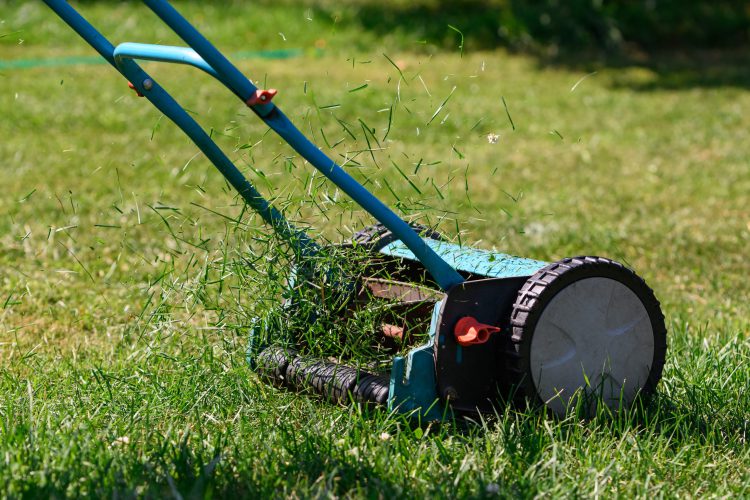The first lawnmower was invented by Edwin Budding in 1830, utilising a roller and cutting cylinder. Its invention revolutionised gardening, transforming grass cutting from a laborious chore that required a scythe to a relatively easy task.
It has been almost 200 years since Edwin invented the lawnmower and over the centuries we’ve seen tremendous development in the technology from steam, petrol and electrically powered varieties to ones you can ride about on and, now, ones that mow the lawn by themselves.
Despite all of these developments, in recent years there’s been somewhat of a resurgence in the number of manual push cylinder lawn mowers available on the market, many of which are not too dissimilar from that very first lawn mower.
Manual mowers rely on your own steam to cut the grass and are, therefore the most environmentally friendly way you can mow the lawn. But are they right for you? Here are some of the pros and cons of manual reel lawnmowers to consider…
Cheap
Perhaps the most common reason people buy manual mowers is the fact that they’re cheap, very cheap. With no motors, cables, wiring or anything else, there’s little to pay for so you can pick up very basic manual mowers for around £45. As with most things there are more expensive choices – with some premium options from the likes of Fiskars – costing several hundred pounds. But pound for pound, manual mowers are cheaper than any of their counterparts.
Environmentally friendly
As we mentioned above, push mowers are the most environmentally way to mow your home lawn. There’s no petrol, mains power or lithium-ion batteries to contend with, it’s just you that propels the machine, so there’s no pollution to worry about or concerns to do with carbon costs and battery disposal.
Little to go wrong
The greatest strength of the push mower is its simplicity – there’s so little to go wrong that there are people who’ve had the same mower for decades. Your annual service is as simple as having the blades sharpened – to make cutting as efficient as possible –and oiling it. So if maintenance and upkeep costs are a big concern, a manual mower is going to be right up your street.
Quiet
If you’re fond of a 6am Saturday mow you might become better friends with your neighbours by opting for a manual mower, as they’re some of the quietest options you have when it comes to cutting the grass.
It’s important to note at this point though, that many modern battery-powered mowers are very quiet. Whereas a rusty, poorly maintained, manual variety can develop a great many annoying squeaks and squeals which may, in turn, be accompanied by frustrated shouts and shrieks from its operator — perhaps totally mitigating the decrease in sound pollution from an engine.
So look after it well, and it will well look after you (well, your lawn at least).
Despite all their merits, the humble manual cylinder mower does have some pretty major drawbacks that make them not the best choice for many lawns or people:
Hard work
The biggest, and most obvious drawback, of the manual mower is that they can be really hard work to use. While they can chop through a small flat lawn with relative ease, larger lawns or those on slopes can be problematic. While some people might like the workout from using a manual mower, this can render them unsuitable for others.
To make them lighter, most manual mowers do not have a heavy roller, but this also means no lawn stripes. If this is something you want, you’ll need to purchase a push mower with an in-built roller which will be even more cumbersome.
Not great at grass collection
Many push mowers don’t have grass collection bags and the ones that do don’t collect anywhere nearly as well as a powered mower. This can compound the amount of work involved, as you’ll need to go around with a rake afterwards clearing up grass clippings to prevent lawn disease.
Foliage can be an issue
Come autumn a good quality petrol mower will chomp through fallen leaves, twigs, and other foliage with absolute ease, and this is where push mowers struggle. Which means you’ll need to clear any leaf-fall and green detritus before you mow.
Slow
Finally, unless you’re looking for a good workout, manual mowers are considerably slower than other types. Meaning you’ll be spending more time each week cutting the grass.
So, is a manual mower the right choice for you?
If you’re relatively physically fit, looking for an environmentally friendly way to cut the grass, and either have a small lawn or don’t mind spending more time cutting the grass generally, a manual mower could be the right choice for you. However, people with larger gardens will probably want some kind of powered mower to stop the chore from becoming too monotonous. Click here to read our selection of the best powered mowers under £500.





